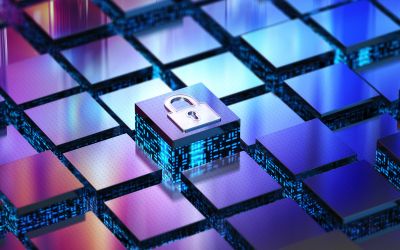| Expiry period |
Lifetime |
|
|
| Made in |
English |
|
|
| Last updated at |
Thu Jan 2024 |
|
|
| Level |
Beginner |
|
|
| Total lectures |
15 |
|
|
| Total quizzes |
0 |
|
|
| Total duration |
Hours |
|
|
| Total enrolment |
 9
9 |
|
|
| Number of reviews |
1 |
|
|
| Avg rating |
|
|
|
| Short description |
Dive deep into the realms of cybersecurity and digital forensics with this comprehensive course. Explore foundational concepts, delve into hands-on labs, and analyze real-world case studies. Whether you're a beginner seeking a strong start or a professional aiming for mastery, this course offers a structured journey through the ever-evolving world of digital security and investigation. |
|
|
| Outcomes |
- Foundational Mastery: Obtain a comprehensive understanding of the foundational concepts in both cybersecurity and digital forensics, allowing for a well-rounded perspective on digital threats and investigations.
- Practical Skills: Gain hands-on experience in identifying, mitigating, and responding to cyber threats through guided labs and exercises.
- Forensic Expertise: Acquire the ability to perform digital investigations, from collecting digital evidence to analyzing intricate forensic artifacts.
- Strategic Insight: Develop an understanding of cybersecurity strategies, from designing secure network architectures to implementing robust incident response plans.
- Certification Readiness: Be well-prepared to sit for industry-recognized certifications, armed with relevant knowledge and exam-taking strategies.
- Trend Awareness: Gain insights into emerging trends in the cybersecurity and digital forensics domain, ensuring continued relevance in an evolving digital landscape.
- Ethical Acumen: Understand the ethical implications and responsibilities associated with cyber roles, ensuring integrity in professional endeavors.
- Real-world Application: Through case study analysis, derive practical lessons and strategies from past incidents, enhancing problem-solving skills in real-world scenarios.
- Networking Skills: Build connections and professional networks through group discussions, team projects, and community engagement.
- Career Readiness: With a robust skill set and comprehensive knowledge, be better positioned for roles in cybersecurity and digital forensics, from entry-level positions to specialized roles.
|
|
|
| Requirements |
- Basic Computer Literacy: Familiarity with common computing tasks, such as using operating systems, navigating the web, and managing files.
- Fundamental Networking Knowledge: A basic understanding of networking concepts, such as IP addresses, DNS, and HTTP, would be beneficial. If you're new to this, some pre-course reading might help.
- Access to a Computer: A system (Windows, macOS, or Linux) with administrative rights to set up and run various software tools utilized in the course.
- Reliable Internet Connection: Given that portions of the course may be delivered online or require web-based research and activities.
- Virtualization Capabilities: It's recommended that your computer be capable of running virtualization software (like VMware or VirtualBox) for hands-on labs.
- Passion for Learning: Given the dynamic nature of cybersecurity and digital forensics, a keen interest and commitment to continuous learning will greatly benefit the participant.
- Optional - Previous IT Experience: While not mandatory, participants with prior IT, networking, or programming experience might find certain concepts easier to grasp.
- Dedicated Workspace: A quiet and conducive environment for focused learning, especially during hands-on labs and case study analysis.
- Storage Space: Ensure ample storage on your computer for software installations, virtual machines, and course materials.
- Ethical Considerations: This course strictly adheres to ethical guidelines. Learners should be committed to using the skills and knowledge gained for legal and ethical purposes only.
|
|
|


 9
9 